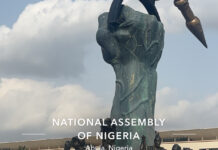Banditry in the Northwest: A call for political will and urgent action, by Hassan Ahmad
Story by Jessica Mbamah
The unrelenting wave of bandit attacks across Katsina, Zamfara, Sokoto, and Kebbi States has become a humanitarian disaster that threatens the very soul of the Northwest. Every passing day brings another report of innocent villagers being slaughtered, families driven from their ancestral homes, and communities abandoned to fear.
These are places where our great-grandfathers were born and buried—lands steeped in history and identity. Today, they are being reduced to wastelands by armed miscreants who operate with alarming boldness.
The scale of displacement is staggering. Farmlands lie fallow, children are out of school, and economic life is grinding to a halt. It is not just the poor farmer or herdsman who feels this pain—every family, rich or poor, is now connected to a story of tragedy. The grief is so deep that even some governors have been visibly devastated, with reports of some breaking down in tears as they visit camps for displaced people or view the aftermath of attacks. These are leaders who, despite their titles, find themselves effectively handicapped. They are not in control of security; by constitutional design, the power to command armed forces rests solely with the Federal Government. At best, they can provide logistics—fuel for patrol vehicles, stipends for local volunteers, and food for victims. But the power to act decisively against the bandits lies elsewhere.
The Federal Government must understand the dangerous strain on the masses. To continue on this path risks pushing already desperate citizens into despair or vigilantism. The recent turmoil in Nepal is a warning: when leaders appear indifferent or helpless in the face of national suffering, public frustration can quickly boil over into unrest that destabilises a nation.
Nigeria cannot afford such a collapse. We have seen the anger in the eyes of displaced villagers, the hopelessness of widows and orphans, and the unease of urban families watching rural violence creep closer to their doorsteps. This is not the time to test the patience of people who have endured more than their fair share.
READ ALSO: Nigeria at the Crossroads: Politics, insecurity, and the road to 2027, by Hassan Ahmad
Governors of Sokoto, Kebbi, Zamfara, and Katsina must close ranks and press the Federal Government—not with polite statements, but with persistent and united demands—to act with urgency. The Northwest must speak with one voice: enough is enough. The luxury of political calculation or blame-shifting is over. Nigerians know the capability of our security forces. The Mobile Police, State Security Service, Nigeria Security and Civil Defence Corps, and other elite units have earned global respect for their performance in peacekeeping missions. To suggest that local bandits, many of them poorly trained and lightly armed, are beyond their reach is to insult their professionalism and bravery.
The truth is simple: the bandit problem persists not because it is insurmountable, but because there has been insufficient political will to confront it decisively. With clear directives, coordination, and sustained operations, these criminals could be neutralised within days. Security agencies need more than logistics—they need the green light and full backing of the Federal Government. Every day of hesitation deepens the wounds: more children orphaned, more homes burned, more livelihoods destroyed.
At the same time, the tone of political communication matters. While communities are reeling from grief, lavish advertising or exaggerated self-praise by any level of government is a dangerous provocation. Leaders must show humility, solidarity, and empathy. They should appear in the villages, not just on billboards. They should spend resources on relief, security, and rebuilding—not image-making. This is not a season for glory-seeking; it is a season for service and sacrifice.
The masses are not asking for miracles. They are asking for basic safety—the right to farm their land without fear, to send their children to school, and to sleep under their own roofs without dreading the sound of gunfire. They are asking for leaders to prioritise their lives above politics or pride. If we fail to act now, we risk a dangerous erosion of public trust in government, a vacuum that could be filled by chaos or extremism.
READ ALSO: Northern governors and the dangers of wishful politics, by Hassan Ahmad
The Federal Government must avoid humiliating our own security forces through indecision. These men and women have proven their strength abroad; they should be empowered to prove it at home. The governors’ tears are a symptom of a larger problem: leadership paralysis at the centre. Our leaders must stop belittling the capacity of our police, soldiers, and intelligence agencies by hiding behind excuses. The people of Sokoto, Kebbi, Zamfara, Katsina, and Nigeria as a whole deserve more than sympathy—they deserve action.
Let the Federal Government summon the same resolve it has shown in international operations. Let the governors stand united, not as party men or rivals, but as protectors of their people. Let them speak with moral clarity and refuse silence until meaningful, coordinated security operations are underway. Let them remind Abuja that stability in the Northwest is stability for all of Nigeria.
The hour is late, but it is not yet too late. Banditry can be defeated, communities can be rebuilt, and faith in governance can be restored—if those in power choose courage over calculation. The alternative—a slow slide toward widespread unrest, the likes of which Nepal recently endured—is a risk no responsible leader should take.
Follow the Neptune Prime channel on WhatsApp:
Do you have breaking news, interview request, opinion, suggestion, or want your event covered? Email us at neptuneprime2233@gmail.com





